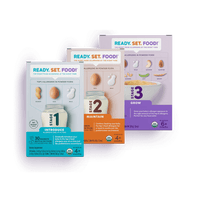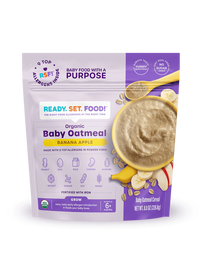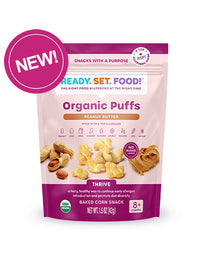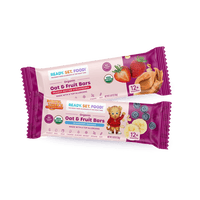Learn the 5 most important rules for introducing your baby to allergens, based on recommendations from the National Institutes of Health (NIH).
In our effort to help families introduce allergens safely, we put together this guide on how to safely and effectively introduce allergens as the NIAID Guidelines state: "early introduction of peanut will result in the prevention of peanut allergy in a large number of infants."
“While I recommend early allergen introduction to all my patients and tell them about the benefits proven by recent studies, I find most families struggle with the demands of sustaining exposure. It’s important for families to understand: studies show that once is not enough, your infant needs to continue to eat allergenic foods multiple times a week for many months,” explains Andrew Matthew, M.D., Chief of Pediatrics at Los Robles Medical Center.
Learn more about why many families struggle with following the new food allergy recommendations from our Chief Allergist and Board-Certified Allergist Katie Marks-Cogan M.D:
5 Crucial Rules for Allergen Introduction
Remember to consult your pediatrician to determine the best plan for your baby, if your baby has severe eczema.
-
Start Early:
Studies recommend starting as early as 4-6 months to align with an infant’s critical immune window. This window gives your infant the best opportunity to develop a positive response to new foods. -
Introduce One Food At A Time:
Following pediatric recommendations, only introduce allergenic foods one at a time every few days to better determine how baby is reacting to each new food you introduce. Here are
some methods on how to prepare peanut safely for your infant. -
Start with a Low Dose, Then Gradually Ramp Up Dosage:
The PETIT study suggested that a step-wise dosing method (low to high dose) maximized safety and efficacy, resulting in a 79% reduction in the rate of egg allergy. In developing Ready. Set. Food!, we wanted to make our product both safe and effective for families. That’s why our dosage schedule not only aligns with the study guidance but also starts with a low dose and safely increases to the full dose, as recommended by leading pediatricians. Families can follow our dosage schedule to ensure a gradual and gentle approach to early allergen introduction: -
Continue Multiple Times A Week For Several Months:
In the clinical trials, infants were continually exposed to allergenic foods 2-7 times a week for at least 3-6 months. Participants who continued exposure were able to maximize their chance of reducing the risk of developing food allergies. -
Starting Early and Sustaining Exposure Can Be Difficult:
Many families struggle with early and sustained exposure. For example, in the EAT study, over half of families who participated weren’t able to sustain exposure. Many 4 month olds are not ready for solid foods, or are picky eaters and consistently feeding them anything can be nearly impossible.
We’ve heard from countless families that following the study guidance can be very difficult without help -- even our head allergist (and mom of two) would agree. The National Peanut Board has recommended recipes for peanut introduction, but even then you still need to make sure to get frequent exposure to egg, dairy, and other allergenic foods.
Despite being difficult, it’s incredibly important to continue exposure, which is why we created Ready. Set. Food! so that it would be easy for all parents to start early and sustain exposure.
Our allergist-developed system allows you to enjoy the proven benefits of early allergen introduction, safely and easily. We’ve done all the hard work so you don’t have to!

Pros And Cons Of Sippy Cups
Thinking about giving your little one a sippy cup? Today, we’ll co...

What Toddlers Eat In A Day: 12-18 Months Old
Looking for ideas of what to feed your 12-18 month old little one? ...

New Study Shows That Infant Anaphylaxis Usually Resolves With One Epinephrine Dose
A recent study has shown that, when infants experience severe aller...

Pregnancy Nutrition: What To Eat In The First Trimester
What to eat in the first trimester that will nourish your body, pro...

Formula Feeding Amounts: How Much Formula Should You Feed Baby Per Day?
How much formula should baby drink per day? It depends on their age...

What Baby Eats In A Day: 6-12 Months Old
Looking for ideas of what to feed your 6-12 month old little one? H...
All health-related content on this website is for informational purposes only and does not create a doctor-patient relationship. Always seek the advice of your own pediatrician in connection with any questions regarding your baby’s health.
These statements have not been evaluated by the Food and Drug Administration. Products are not intended to diagnose, treat, cure or prevent any disease. If your infant has severe eczema, check with your infant’s healthcare provider before feeding foods containing ground peanuts.










